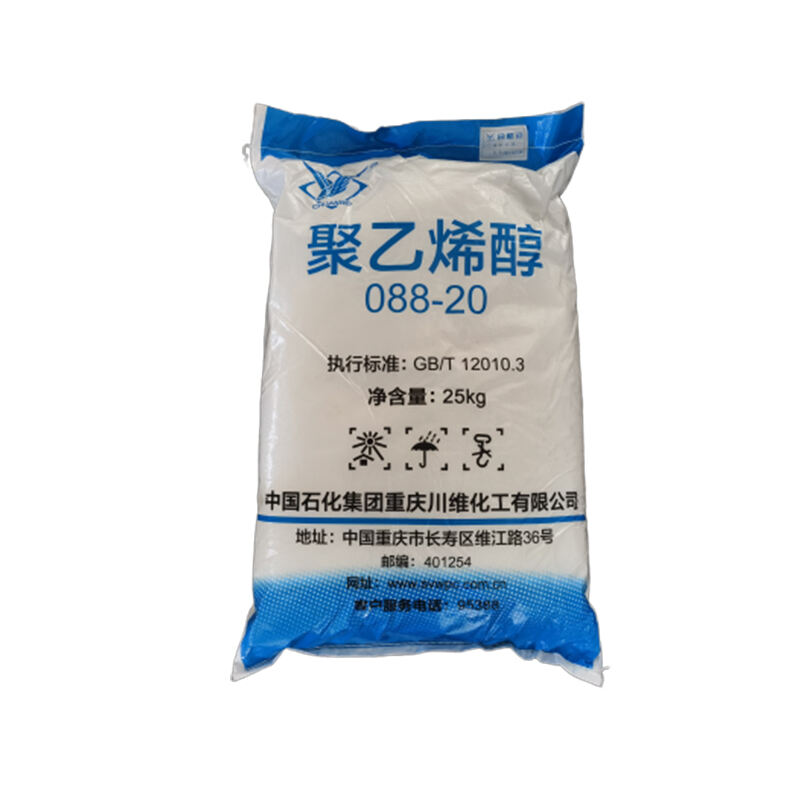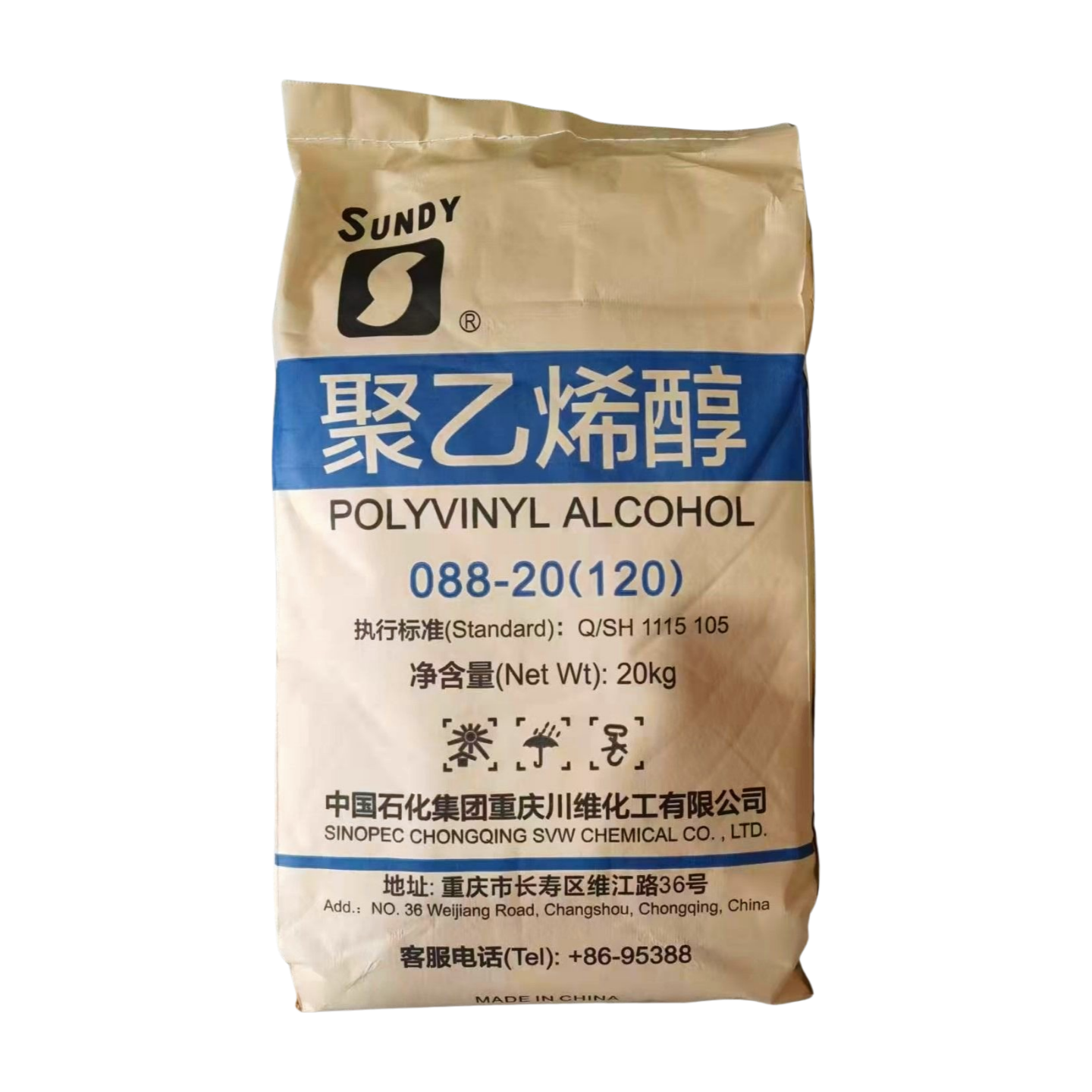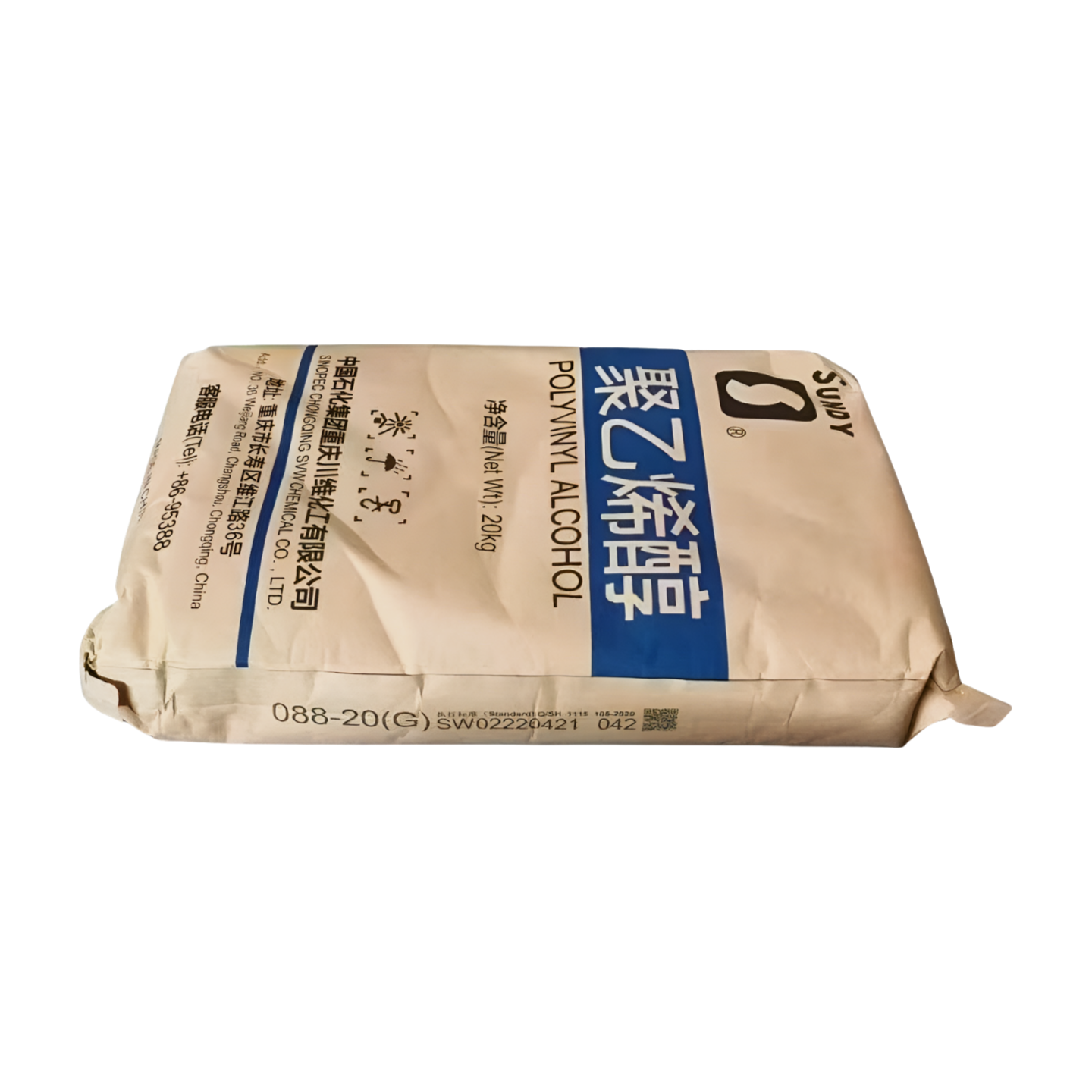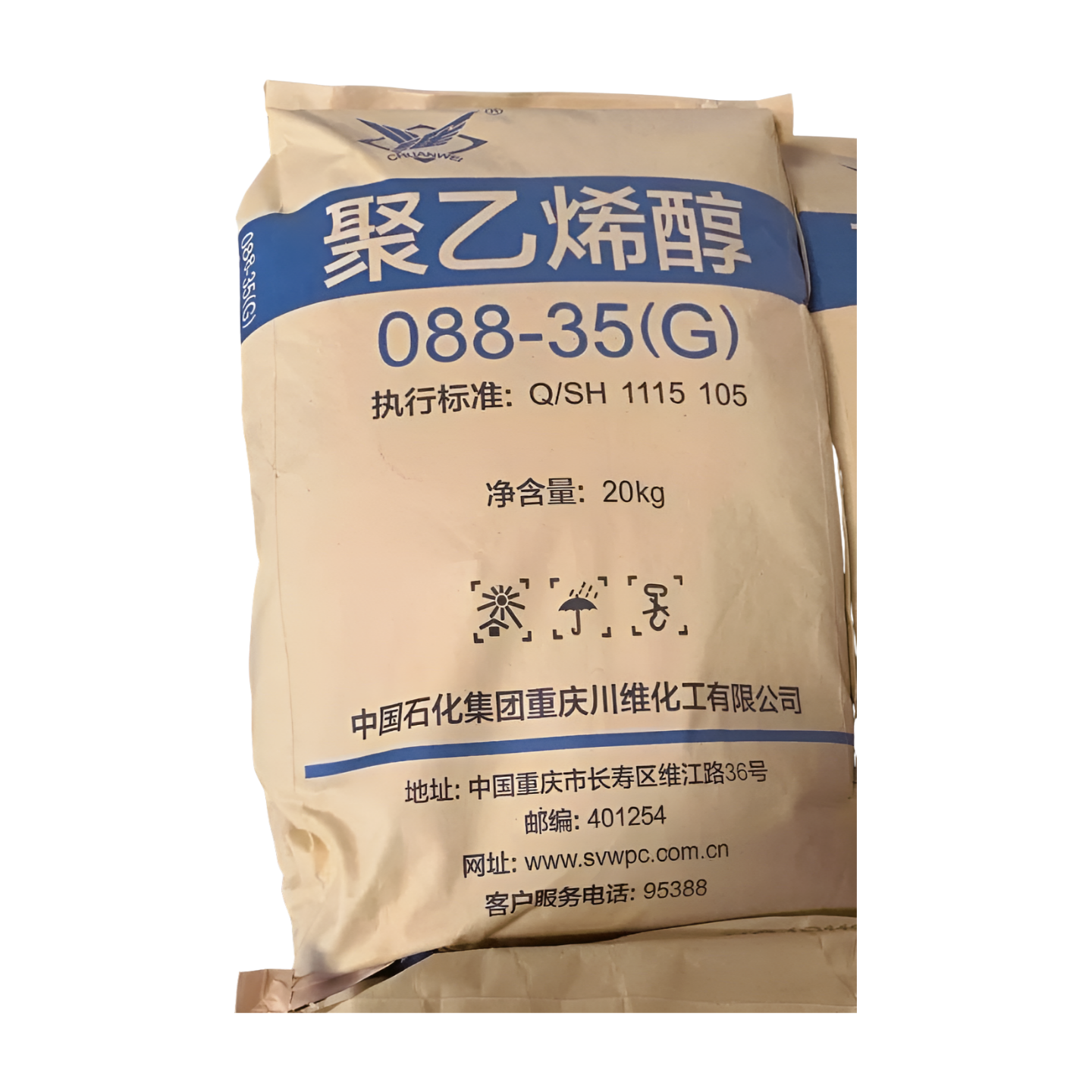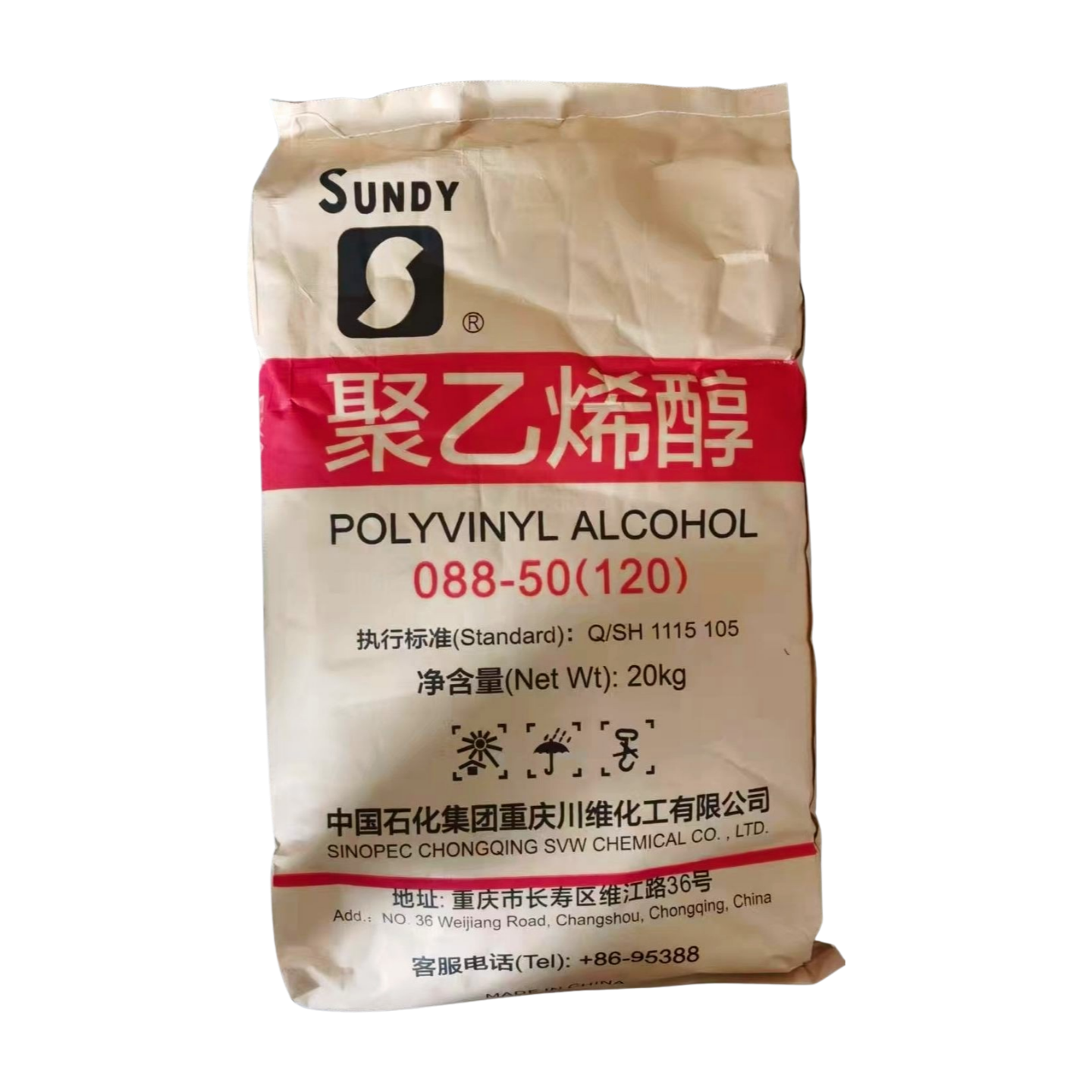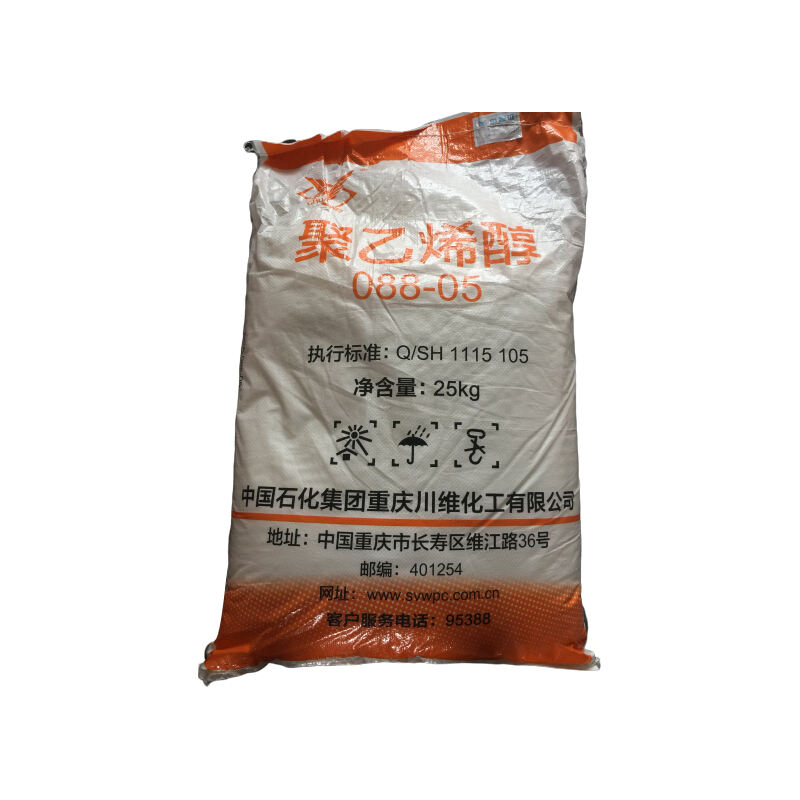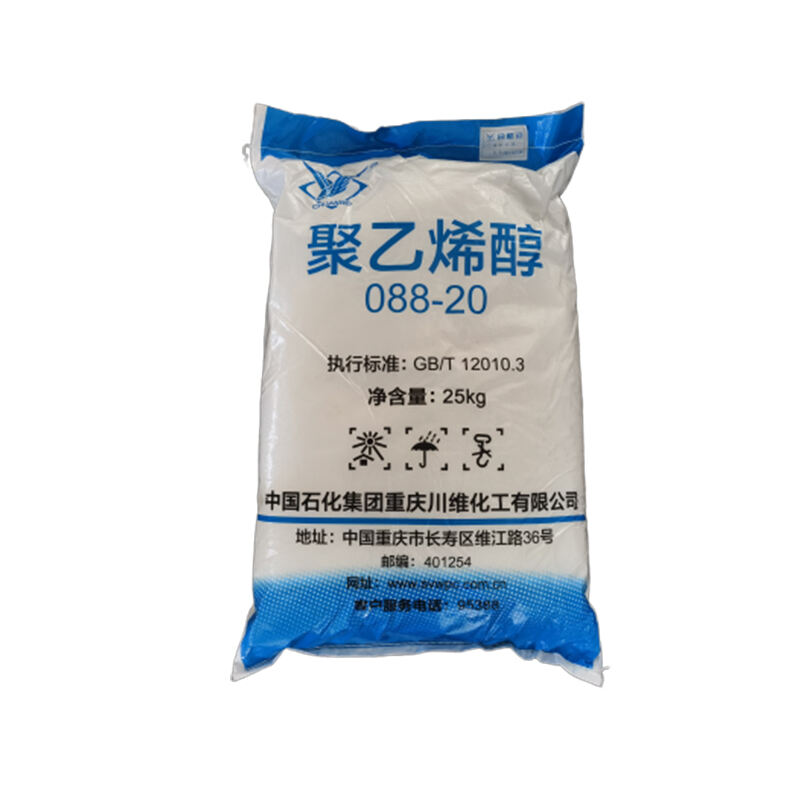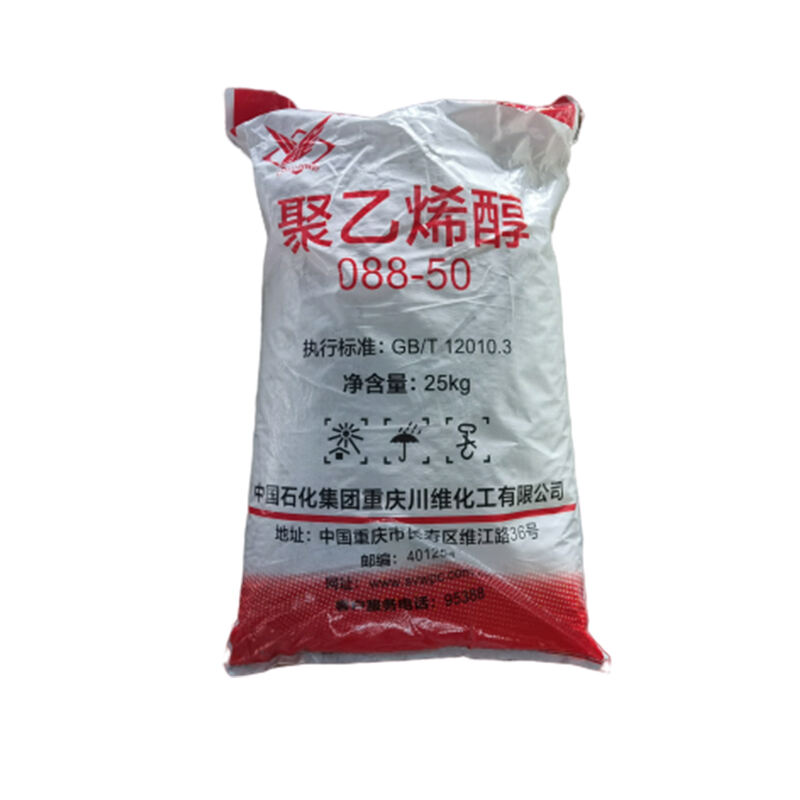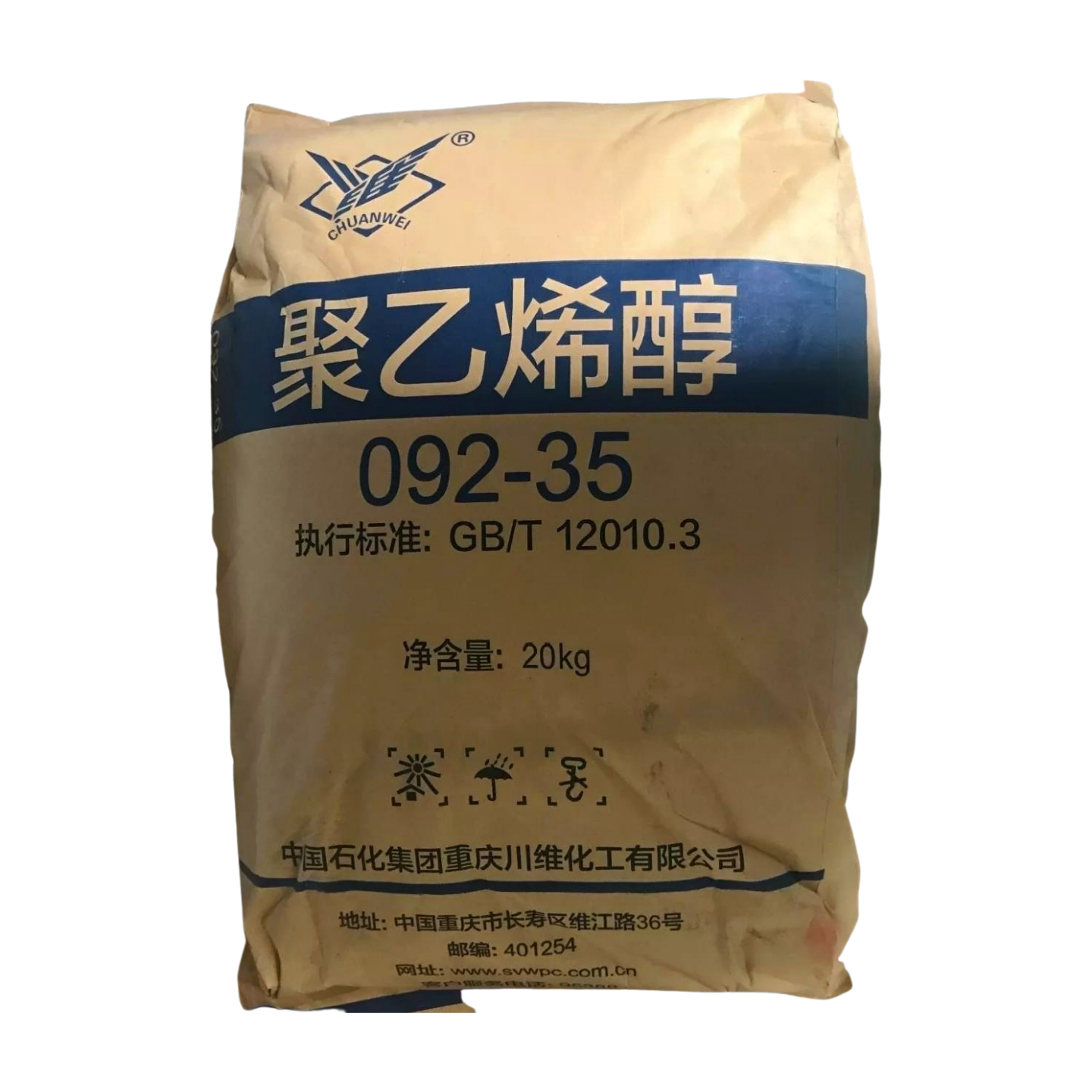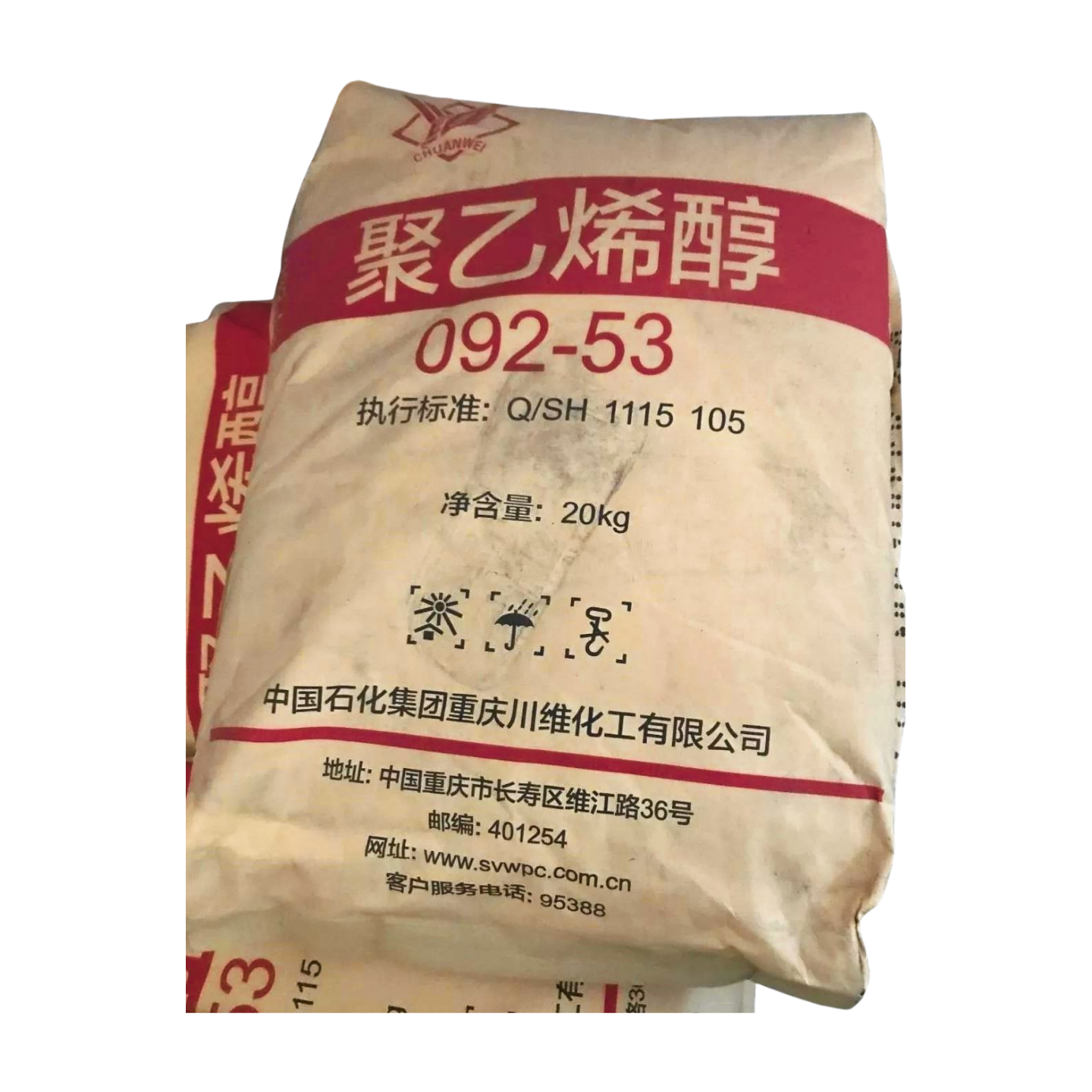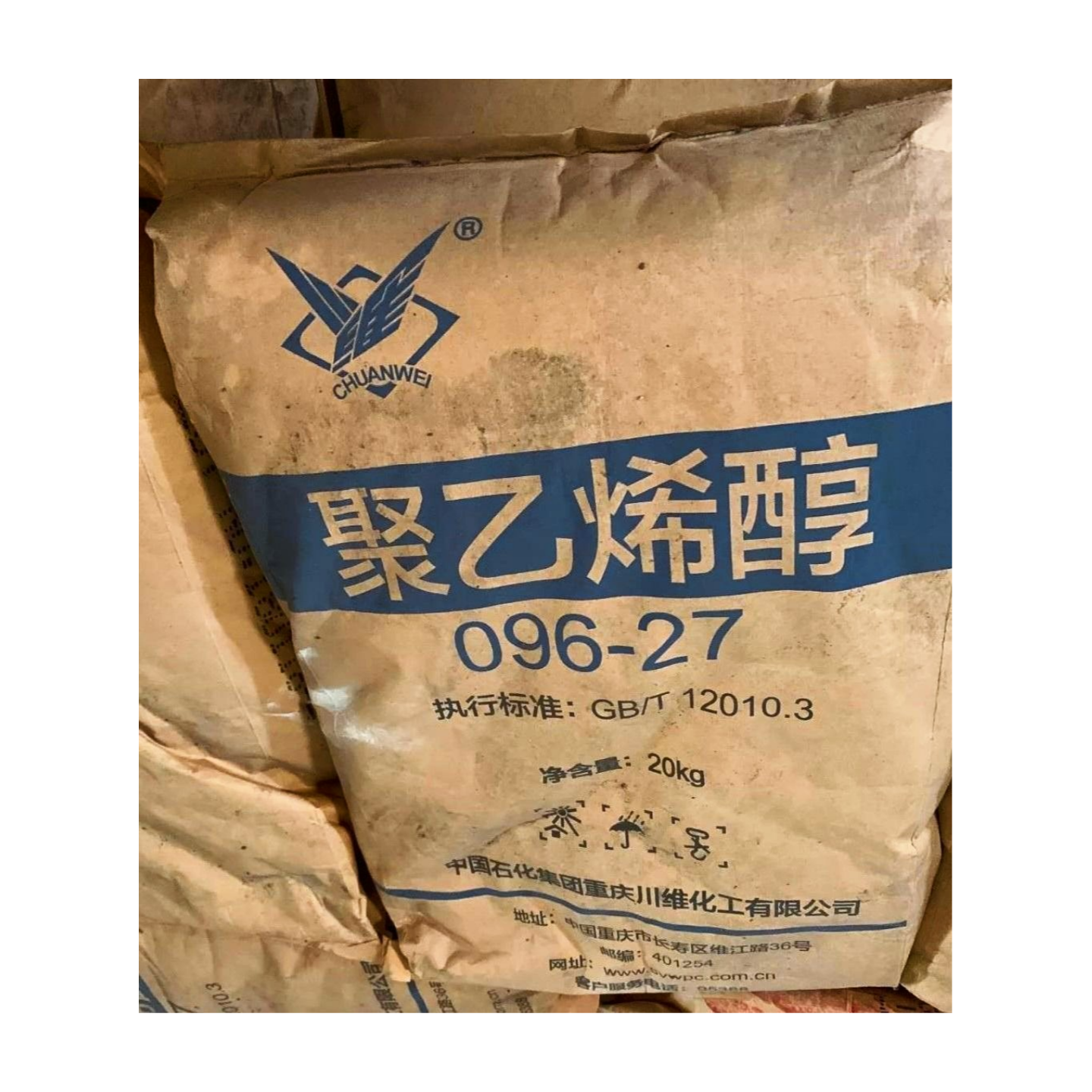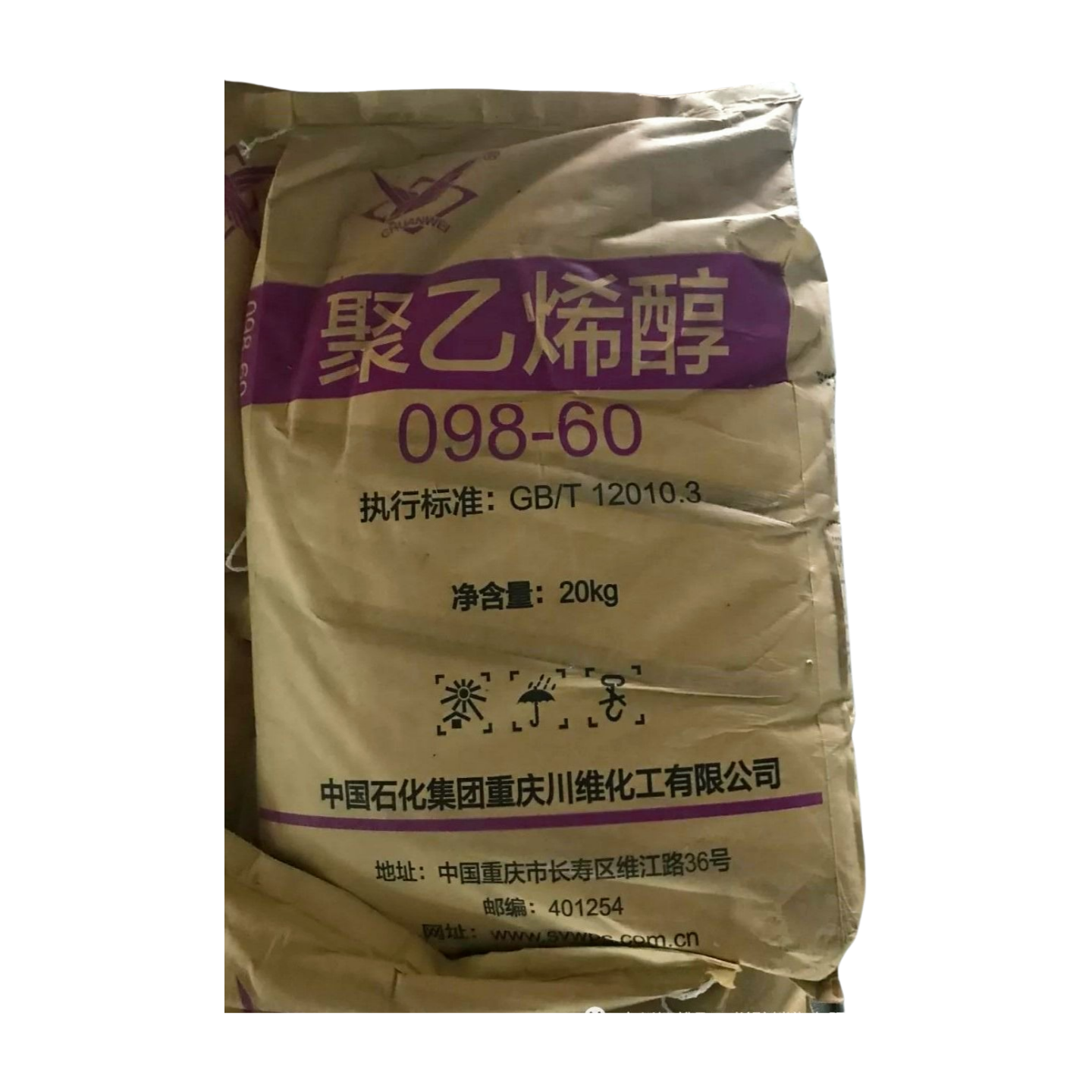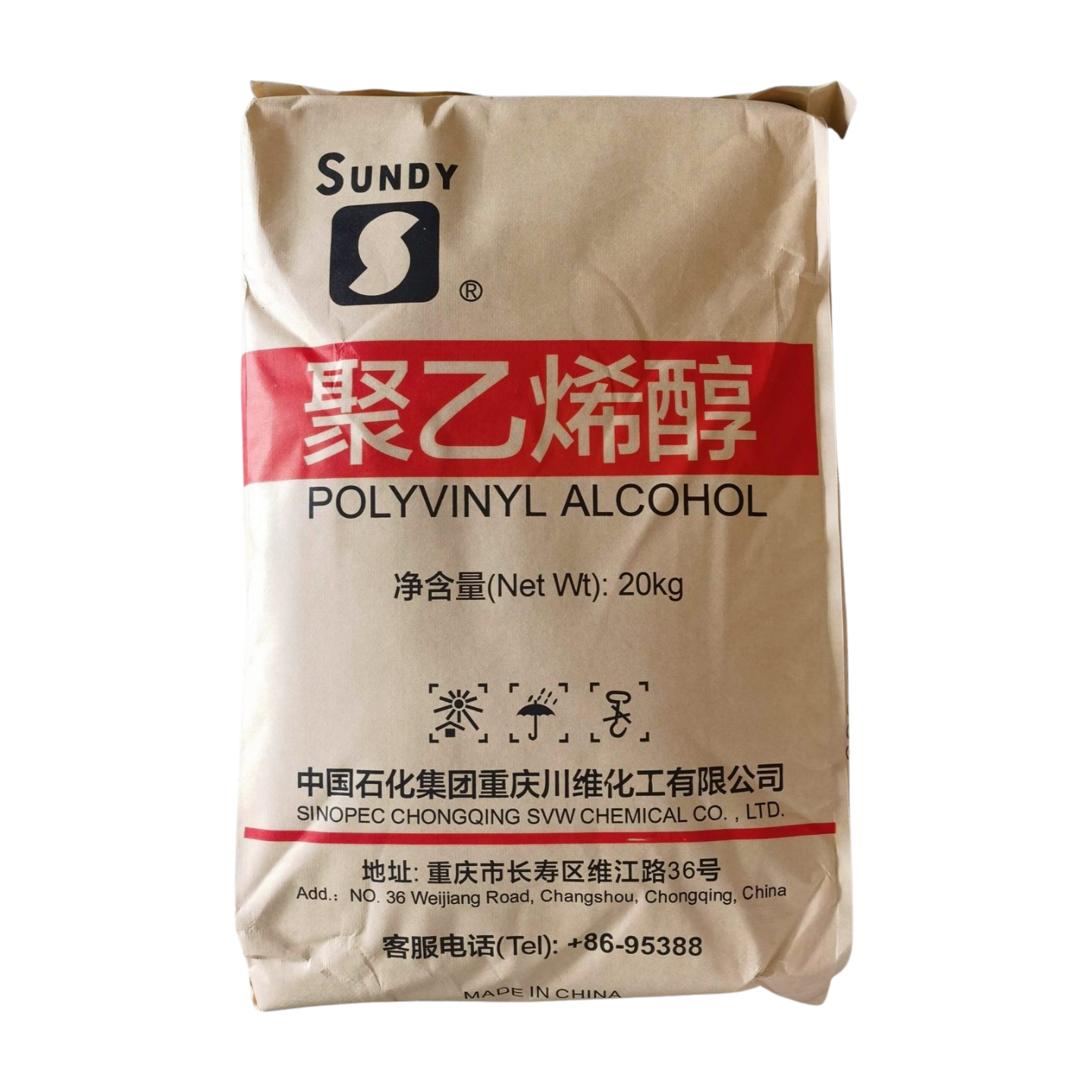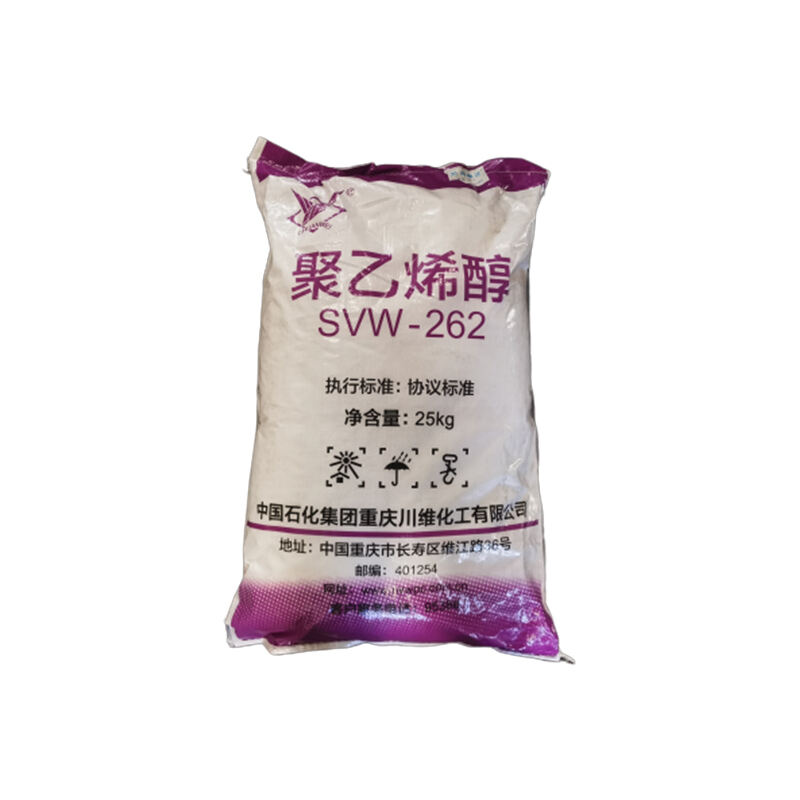PVA SINOPEC SUNDY
Description
|
Item |
Hydrolysis (mol%) |
Viscosity (mpa.s) |
Volatile (%≤) |
Ash (%≤) |
PH (Value) |
|
086-03 |
85.0-87.0 |
3.4-4.2 |
≤5.0 |
≤0.4 |
5~7 |
|
088-05 |
87.0-89.0 |
4.5-6.0 |
≤5.0 |
≤0.5 |
5~7 |
|
098-05 |
98.0-99.0 |
5.0-6.5 |
≤5.0 |
≤0.5 |
5~7 |
|
088-08 |
87.0-89.0 |
8.0-10.0 |
≤5.0 |
≤0.5 |
5~7 |
|
098-08 |
98.0-99.0 |
9.0-11.0 |
≤5.0 |
≤0.5 |
5~7 |
|
088-20 |
87.0-89.0 |
20.5-24.5 |
≤5.0 |
≤0.4 |
5~7 |
|
092-20 |
91.0-93.0 |
21.0-27.0 |
≤5.0 |
≤0.5 |
5~7 |
|
094-27 |
94.0-96.0 |
22.0-28.0 |
≤5.0 |
≤0.5 |
5~7 |
|
096-27 |
96.0-98.0 |
23.0-29.0 |
≤5.0 |
≤0.5 |
5~7 |
|
100-27 |
99.0-100.0 |
22.0-28.0 |
≤5.0 |
≤0.7 |
5~7 |
|
088-35 |
87.0-89.0 |
29.0-34.0 |
≤5.0 |
≤0.3 |
5~7 |
|
092-35 |
91.0-93.0 |
30.0-36.0 |
≤5.0 |
≤0.3 |
5~7 |
|
100-35 |
99.0-100.0 |
35.0-43.0 |
≤5.0 |
≤0.7 |
5~7 |
|
088-50 |
87.0-89.0 |
45.0-55.0 |
≤5.0 |
≤0.3 |
5~7 |
|
098-60 |
98.0-99.0 |
58.0-68.0 |
≤5.0 |
≤0.5 |
5~7 |
|
100-60 |
99.0-100.0 |
58.0-68.0 |
≤5.0 |
≤0.7 |
5~7 |
|
100-70 |
99.0-100.0 |
68.0-78.0 |
≤5.0 |
≤0.7 |
5~7 |
(1) Solubility: It is easily soluble in water, transparent aqueous solution. Its solubility is mainly determined by the degree of polymerization and alcoholysis. With the decrease of alcoholysis degree, the water solubility increases and the dissolution temperature decreases correspondingly. The water solubility is the best when the alcoholysis degree is 88%.
(2) Film forming: PVA aqueous solution is easy to form a film, the film formed is colorless and transparent, has good mechanical strength, and the surface is smooth and not sticky. The film can transmit water vapor, but the permeability of hydrogen, oxygen, carbon dioxide and other gases is very low, and the change of external temperature has little effect on the film.
(3) Adhesion: PVA aqueous solution can bond with porous substances such as fiber, wood, paper, etc., and the adhesion is good.
(4) Miscibility: PVA can be miscible with starch, gum, synthetic resin, cellulose derivatives and various surfactants and has good stability.
(5) Chemical resistance: At room temperature, the pH value of PVA aqueous solution is generally about 5-7, the viscosity is stable, almost unaffected by weak acid, weak base or organic solvent (ester, ketone, higher alcohol, hydrocarbon), oil resistance is extremely high, but it can be decomposed by peroxide such as H2O2.
(6) Heat resistance: PVA is softened by heat, and when heated to 130~140℃, its properties hardly change, only the color turns yellow. Long-term heating at 160℃ darkens the color. At 200℃, intermolecular dehydration and water solubility decrease. At temperatures above 200℃, intramolecular dehydration occurs. Close to 300℃, completely decomposed into water, acetic acid, acetaldehyde and crotonaldehyde (in the sizing drying process without adverse effects).
(7) Color rendering: PVA can form molecular adducts with dyes Congo red, iodine, copper hydroxide, boric acid and salts, which can be used to identify desizing and depuration degrees and distinguish PVA with different alcoholysis degrees.

